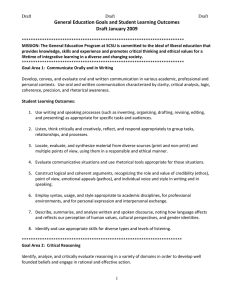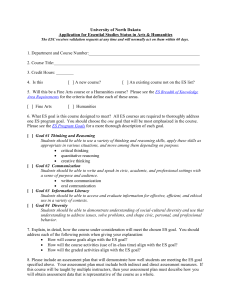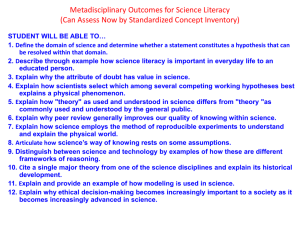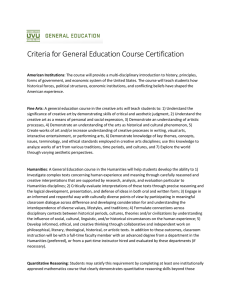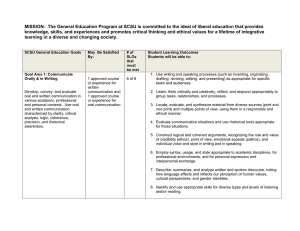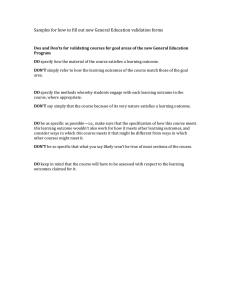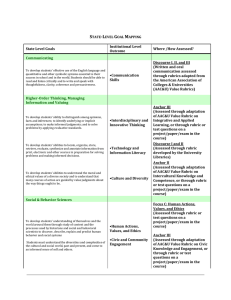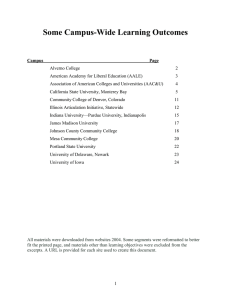UMKC Undergraduate General Education Student Learning Outcomes
advertisement
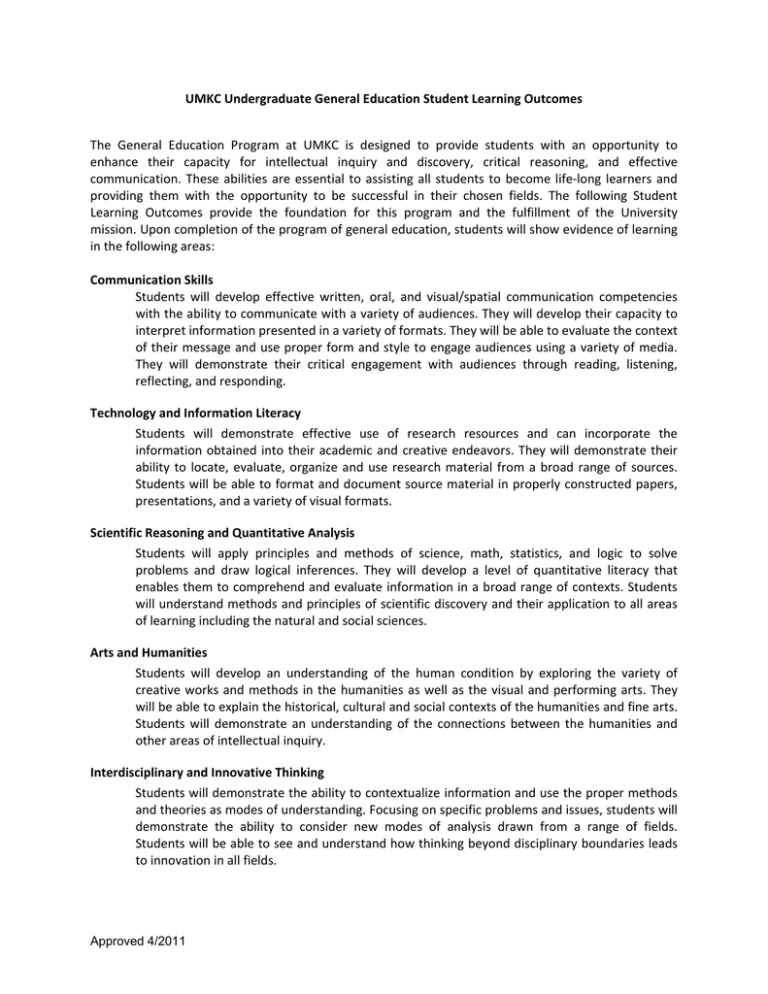
UMKC Undergraduate General Education Student Learning Outcomes The General Education Program at UMKC is designed to provide students with an opportunity to enhance their capacity for intellectual inquiry and discovery, critical reasoning, and effective communication. These abilities are essential to assisting all students to become life‐long learners and providing them with the opportunity to be successful in their chosen fields. The following Student Learning Outcomes provide the foundation for this program and the fulfillment of the University mission. Upon completion of the program of general education, students will show evidence of learning in the following areas: Communication Skills Students will develop effective written, oral, and visual/spatial communication competencies with the ability to communicate with a variety of audiences. They will develop their capacity to interpret information presented in a variety of formats. They will be able to evaluate the context of their message and use proper form and style to engage audiences using a variety of media. They will demonstrate their critical engagement with audiences through reading, listening, reflecting, and responding. Technology and Information Literacy Students will demonstrate effective use of research resources and can incorporate the information obtained into their academic and creative endeavors. They will demonstrate their ability to locate, evaluate, organize and use research material from a broad range of sources. Students will be able to format and document source material in properly constructed papers, presentations, and a variety of visual formats. Scientific Reasoning and Quantitative Analysis Students will apply principles and methods of science, math, statistics, and logic to solve problems and draw logical inferences. They will develop a level of quantitative literacy that enables them to comprehend and evaluate information in a broad range of contexts. Students will understand methods and principles of scientific discovery and their application to all areas of learning including the natural and social sciences. Arts and Humanities Students will develop an understanding of the human condition by exploring the variety of creative works and methods in the humanities as well as the visual and performing arts. They will be able to explain the historical, cultural and social contexts of the humanities and fine arts. Students will demonstrate an understanding of the connections between the humanities and other areas of intellectual inquiry. Interdisciplinary and Innovative Thinking Students will demonstrate the ability to contextualize information and use the proper methods and theories as modes of understanding. Focusing on specific problems and issues, students will demonstrate the ability to consider new modes of analysis drawn from a range of fields. Students will be able to see and understand how thinking beyond disciplinary boundaries leads to innovation in all fields. Approved 4/2011 Culture and Diversity Students will draw on a variety of disciplines to develop an understanding of the complexities of human cultures, past and present, and come to an informed sense of self and others. Students will demonstrate an awareness of a global culture that may include economic, environmental, political and social issues facing all cultures. They will develop an understanding of the factors defining cultural identities. Human Values and Ethical Reasoning Students will understand principles of value and civic duty in a wide range of settings, and will demonstrate an understanding of personal values and the values of others. Students will also be able to identify ethical problems utilizing their understanding of ethical theory and moral reasoning. Civic and Community Engagement Students will be able to identify the problems, challenges, and opportunities of an urban university. Students will also understand their relationship to both a local and global community and the social, political, and cultural issues therein. They will develop an appreciation for the meaning and global impact of urbanization. They will have an understanding of the U.S. and Missouri Constitutions and their impact on issues facing these various communities. They will engage with the UMKC community of learners. Approved 4/2011

